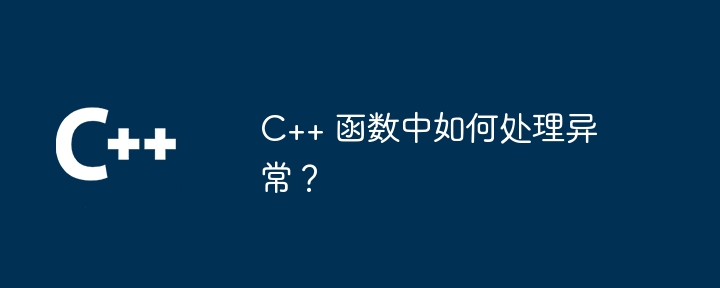在 C 中,例外情況會透過 try-catch 語句處理:try 區塊中程式碼可能會拋出例外。 catch 區塊捕捉標準異常或自訂異常。 noexcept 關鍵字聲明函數不會拋出異常,以進行最佳化。

C 函數中如何處理例外狀況?
在C 中,異常透過try-catch 語句處理,包含三個主要部分:
try {
// 代码块,可能抛出异常
}
catch (const std::exception& e) {
// 捕获标准异常
}
catch (const MyCustomException& e) {
// 捕获自定义异常
}實戰案例:
假設我們有一個函數divide,它計算兩個數的商,但當分母為0 時拋出例外:
int divide(int num, int denom) {
try {
if (denom == 0) {
throw std::runtime_error("除数不能为 0");
}
return num / denom;
}
catch (const std::exception& e) {
std::cout << "错误: " << e.what() << std::endl;
}
}在主函數中,我們可以呼叫divide 函數並捕獲異常:
int main() {
try {
int dividend = 10;
int divisor = 0;
int result = divide(dividend, divisor);
std::cout << dividend << " / " << divisor << " = " << result << std::endl;
}
catch (const std::runtime_error& e) {
std::cout << e.what() << std::endl;
}
}輸出:
错误: 除数不能为 0
注意:
std::exception。 noexcept 關鍵字宣告函數不會拋出例外,以進行最佳化。 以上是C++ 函式中如何處理異常?的詳細內容。更多資訊請關注PHP中文網其他相關文章!




